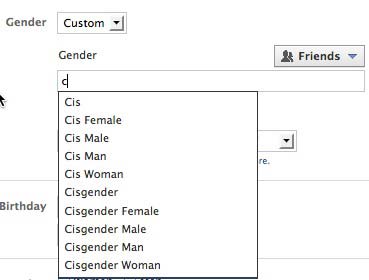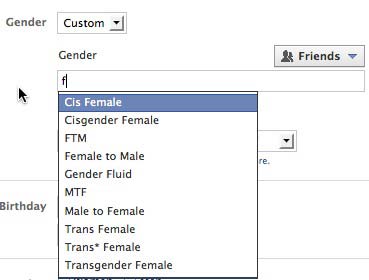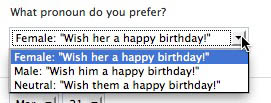Klout.com, a service that has measured a person’s influence and reach on Twitter, just added Facebook to its Klout calculations.
The alliance with Facebook was announced in Do You Have Facebook Klout? Here’s a bit of their explanation about how it will work.
On Facebook, like Twitter, we assess how conversations and content generate interest and engagement. Facebook allows users to post many different types of content, view multiple streams and interact with their friends in more complex ways than we’ve previously seen. We’ve made sure each action and reaction is individually assessed to ensure we give you the most accurate picture of your Klout.
At Pureconent, Catherine explained
To determine level of influence, Klout uses various data points which they then compile into what they call a ‘Klout Score’, which is intended to represent the user’s online influence and ability to compel others to action. On Twitter, Klout uses things such as retweets, number of followers, list memberships, and unique mentions to calculate a user’s ‘true reach’. Now it is applying the same methodology to Facebook.
Apparently, it is more complex to add in a consideration of Facebook influence than simply scoring for Twitter influence – it takes 72 hours to get a score with your Facebook klout. Twitter scores are returned instantly. Connecting your Facebook account to your Klout account will not lower your Klout score, according to the announcement.
Who Needs Klout?
While it’s clean ego-tickling fun to look at your own Klout, the service is not really meant for individuals who simply want to know how they’re doing. Its core reason for being is to help businesses find influencers who can drive action. In other words, you can see other peoples Klout without their permission. (The better to look for those influencers you’re seeking, my dear.) According to Klout Adds Facebook Data to Its Influence Graph
Measuring influence isn’t just something that Klout wants to do in order to make users feel good about themselves, or so it can give them badges for passing certain milestones (although it does that as well). The reality is that as social media and social networks have become a larger and larger phenomenon, marketing agencies and companies have become increasingly interested in using these networks and services to target specific demographics, and to target “influencers” within specific topic areas who can help spread their message.
Not just business, but other seeking to influence events (such as nonprofits or social justice groups) can also make use of Klout.
Nonprofit maven Beth Kanter has written about social influence several times. In Can Social Network Analysis Improve Your Social Media Strategy? she mentions a number of tools other than Klout that can be used to map and measure influence. Beth does include Klout in her post about finding and cultivating the movers and shakers in your area of interest, Twitter Tip for Networked Nonprofits: Follow the Few To Get To the Many. Beth said on The Huffington Post that its about more than just the numbers.
It also helps to understand how networks work and apply that understanding to analyzing the relationships in your network, using social network analysis tools. Then you know who the influencers are and you can formulate and executive an effective strategy based on finding and cultivating them.
Numbers don’t matter as much building relationships one person at a time. The bottom line is to focus on the results of your social media strategy, don’t get distracted by meaningless metrics like the number of followers.
My Klout Before Facebook
I’ll use myself as an example, although I’m not an influencer with much Klout.
However, I’m willing to reveal my data as your guinea pig. I signed up with Klout and looked at my score from my Twitter account. My score was 21. That’s on a scale of 1-100. Along with that raw number, I was given all sorts of charts, like the following one, that explain various aspects of what that number means. This chart shows something called “true reach.”

Like several other charts at Klout, the true reach chart is a dynamic chart. Different results are displayed for True Reach depending on what I click from the bar across the bottom where it says TrueReach, Followers, Friends, Mentions %, and Retweet %.
I also see a list of who I’m influenced by.

Knowing who I’m influenced by isn’t so important to me as an individual – I already know who I’m influenced by. But – and this is a big but – you can look at other people’s Klout scores. All you need is their Twitter username. if you were looking at someone else’s klout results for potential influencers to add to your social network or community, this list of influencers could be very valuable to you.
Klout also wants to help you find influential people. It shows me where it thinks I’m missing a bet with some followers I should follow back.

My Klout After Facebook
I linked my Klout account to my Facebook account and sat back to wait for 72 hours for some results. Facebook isn’t my big thing – I use it because I have to for work. I’m not very connected on Facebook and don’t friend people unless I actually know them, so I was counting on Klout’s promise that my score would not suffer an embarrassing drop after adding in the Facebook data.
It didn’t drop, but it didn’t go up either.

New badges appeared that seem to reflect action on Facebook. The badges for Total Likes, Total Comments, and Unique Commenters were the only thing I could find that was different in my results after the addition of Facebook.
Are you helped by Klout?
Knowing my Klout score isn’t much use to me or anyone else, but I’m not trying to start a movement, raise awareness about an issue, collect money for natural distaster relief or find the people who might convince someone that my product is the best thing to buy. If I was doing any of those things, it would be smart to go looking for influencers on Klout so I could build a relationship with them.
Do you use Klout? Does the addition of Facebook to the scoring process make it even more valuable to you?
Cross posted at BlogHer.











